FIRESTARTER (2022)
A young girl and her father, both with psychic powers, flee from government agents.
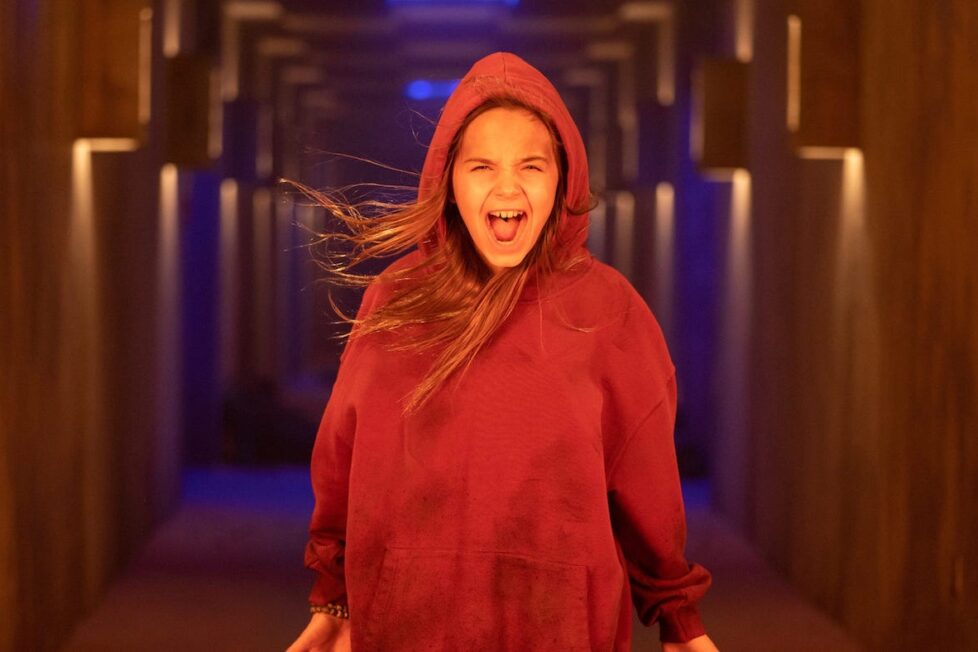
A young girl and her father, both with psychic powers, flee from government agents.


Though both Stephen King’s novel and the original Firestarter (1984) belong, strictly speaking, to the 1980s, the main narrative driver—Everyman and his daughter on the run from a shadowy government agency—is as 1970s as they come. And while this second film adaptation is seemingly set in the present, with a little adjustment it could take place in any decade from the last five or so.
The thriller context with political overtones also gives the story a sense of urgency that many King tales—which take their time in setting up normality before unleashing supernatural horror—lack, and enable it to escape a problem that afflicts many movies of his work. Some of the books have such complex plots and large casts that when they’re condensed to a couple of hours they end up as a series of “significant” lines of dialogue; every single moment has to deliver a point, and there’s no scope to get across the dense atmospheric detail that makes these longer novels work.
Indeed, that’s why so many King films leave the viewer unsatisfied, with Doctor Sleep (2019) being a prime recent example. It’s no surprise most of the best King film adaptations have been of shorter or at least simpler novels or novellas: not just 1976’s Carrie (which along with David Cronenberg’s The Dead Zone in 1983, has strong story similarities to Firestarter), but also Misery (1990), Stand By Me (1986), The Mist (2007), The Shawshank Redemption (1994), and so on. Firestarter benefits here, too, from focusing tightly on a single family rather than a wider community, minimising the need to spend time explaining characters’ backgrounds and relationships.
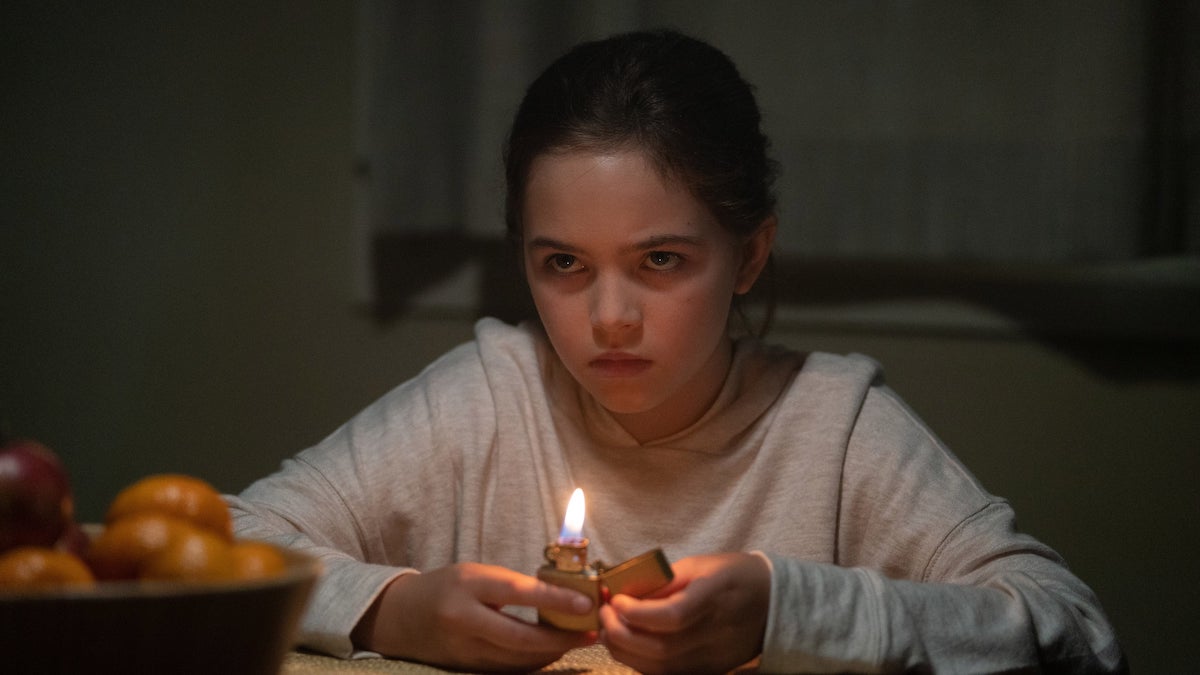
It’s a middling-length novel by King standards, and in this production for Blumhouse, screenwriter Scott Teems (Halloween Kills) wisely follows the general outline of its first part then condenses or simply discards much of the rest. The result is a small-scale film, not only in its runtime but in its cast, its range of locations, its use of VFX, and even its visual flavour: the cinematography by Karim Hussain, with plenty of close-up but few wide or long shots, emphasises the way the central characters are trapped by their circumstances and more concerned about their own survival than the bigger implications of the extraordinary events they are involved in.
20-minutes shorter than the ’84 version of Firestarter (which King disliked) and moving much faster, this new version opens with a baby, and the way that she apparently sets a mobile above her crib on fire just by thinking about it makes it immediately clear she and her ability are going to be the subject of the film. But it soon moves forward some years; the girl Charlie (Ryan Kiera Armstrong) is now about 12, and we also meet her father Andy (Zac Efron) and mother Vicky (Sydney Lemmon).
Her parents discourage young Charlie from using her firestarting skill (“I’m not special, I’m a monster,” she cries, while dad reassures her that “the bad thing has been gone a long time”), even though her father uses his own psychic abilities to make a living as a stop-smoking therapist. He and Vicky, it emerges, participated as students in an experiment on the effects of a new drug called Lot-6, which unexpectedly gave them both telepathic powers; but Charlie’s capacity to light fires is, to them, frightening compared with their relatively minor capabilities.
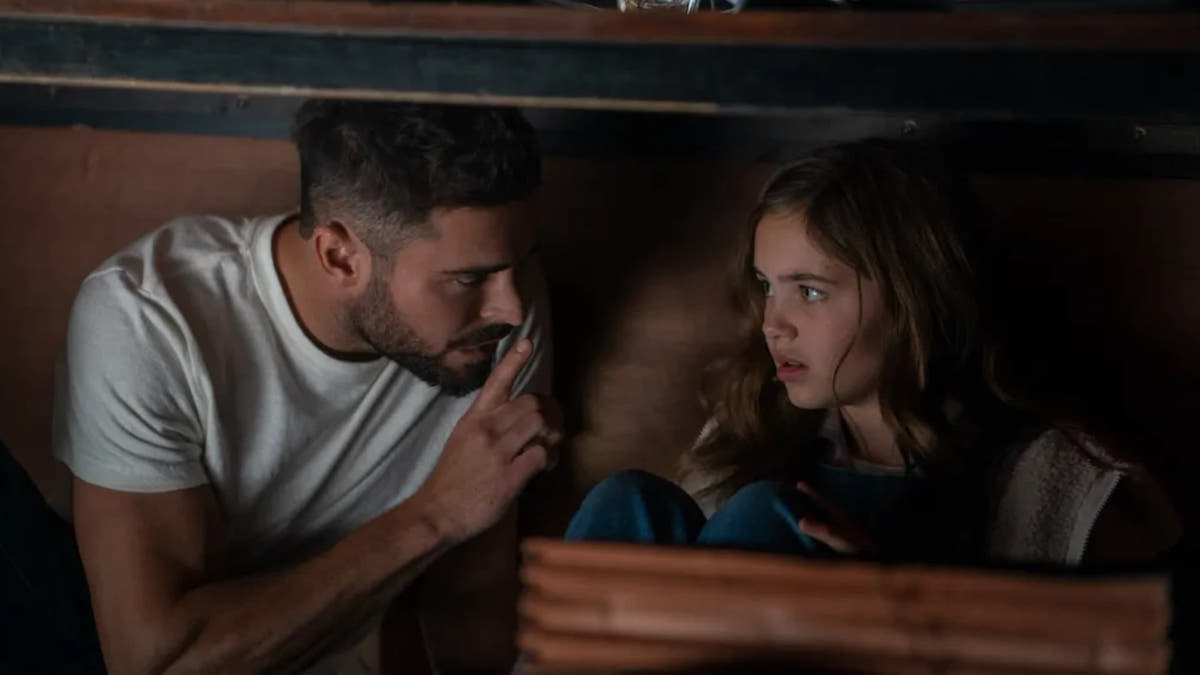
Equally frightening is the way that The Shop, a federal government black-ops agency whose activities seem loosely based on some of the CIA’s more far-out forays into the paranormal during the Cold War, is determined to hunt them down—and it gets its chance when an explosion caused by Charlie at her school shows up on thermal imaging. (Just possibly this accident in a cubicle of a school bathroom is a sly reference to the alleged ubiquity of high-schoolers Juuling in their toilets, in which case it deserves applause.)
The main action of the film then follows the pursuit of Charlie and her parents by the agents of The Shop, who are directed by Captain Hollister (Gloria Reuben) and who include Rainbird (Michael Greyeyes), an odd loner taking a personal interest in the case.
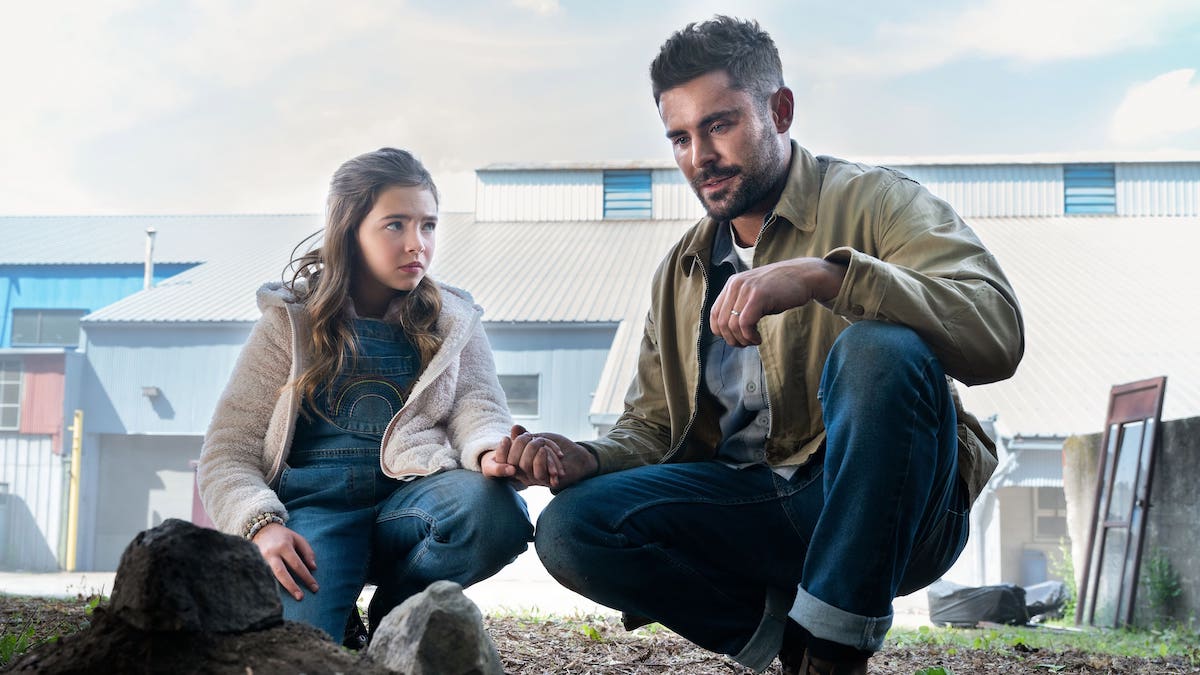
After a slightly slow start, Firestarter picks up pace and never lets it slacken too much, but with the source novel trimmed down to just a few major incidents, there’s still plenty of time to give each its due; unlike many King adaptations there’s no feeling of rushing through a story that’s too much for a single film to bear. Indeed, although the pyrokinetic FX are pleasingly ferocious on the relatively few occasions they’re used, the more low-key scenes are often among the best: Charlie unintentionally setting fire to a cat before she has learned to control her ability, Charlie in the woods working to master it, an episode with three boys who discover she’s not the best girl to bully.
There are some references to the earlier film, though not too many. For example, an episode where Andy tricks someone into believing they are being given a large amount of money is echoed in a different context, while Rainbird, who poses as a janitor in the 1984 film, here is actually working as one. The light sprinkling of humour is well-judged, too (not only a perfect moment for the line “liar, liar, pants on fire” but also a scene where Andy suggests solemnly to his daughter that pyrokinesis “hurts you on the inside”; “actually, it feels kind of good”, she replies).
In its cast, the new Firestarter does lack the delicious amorality of Martin Sheen as Hollister and the sheer wackiness of George C. Scott as Rainbird in the 1984 film, but Reuben makes an interesting alternative Hollister—we can almost believe she’s telling the truth when she promises she wants to help Andy and Charlie, or maybe she almost believes it herself—while Greyeyes as Rainbird is fortunate not to have quite as many silly quasi-mystical lines as Scott was lumbered with (not to mention the inadvertent implications of paedophilia back in ’84). Kurtwood Smith as Dr Wanless, the mastermind of the original Lot-6 experiment, over-acts just as much as his predecessor Freddie Jones; consider it a tribute, perhaps.
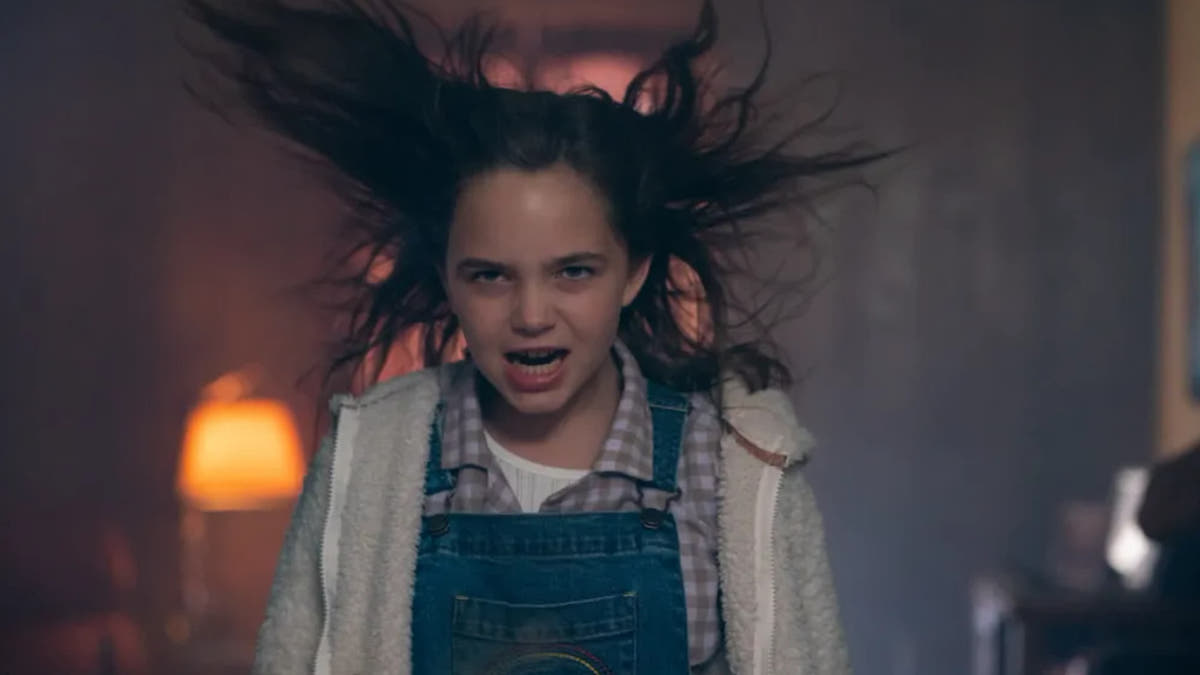
Efron and Armstrong both give solid performances in a film that depends completely on them, Efron perhaps not quite up to the standard set by David Keith in ’84 but convincing enough as a man trying to be confident for the sake of his daughter at the same time as coping with his own worries about the situation and his declining powers. Armstrong is only a few years older than Drew Barrymore in the ’84 film, but plays the part much more maturely; it works just as well in its different way.
An unexpected bonus, meanwhile, comes on the soundtrack: John Carpenter (who was originally slated to direct the first version) contributes a fine score in his characteristic minimal, insistent style, with the collaboration of his son Cody Carpenter and Daniel Davies.
Charlie is called a “real-life superhero” by another character in Firestarter, yet this is about as unlike a superhero film as you can imagine. Grounded and unshowy, it does—modestly but well—what most good horror and much good sci-fi sets out to do: introducing the remarkable into the normal, with results that are both startling and uncontrived. It is never going to rank in the top echelon of King adaptations alongside the likes of Carrie and The Shining (1985), but the new Firestarter provides well-crafted straightforward entertainment, and in its unextravagant way at least equals the original.
USA | 2022 | 94 MINUTES | 2.39:1 | COLOUR | ENGLISH

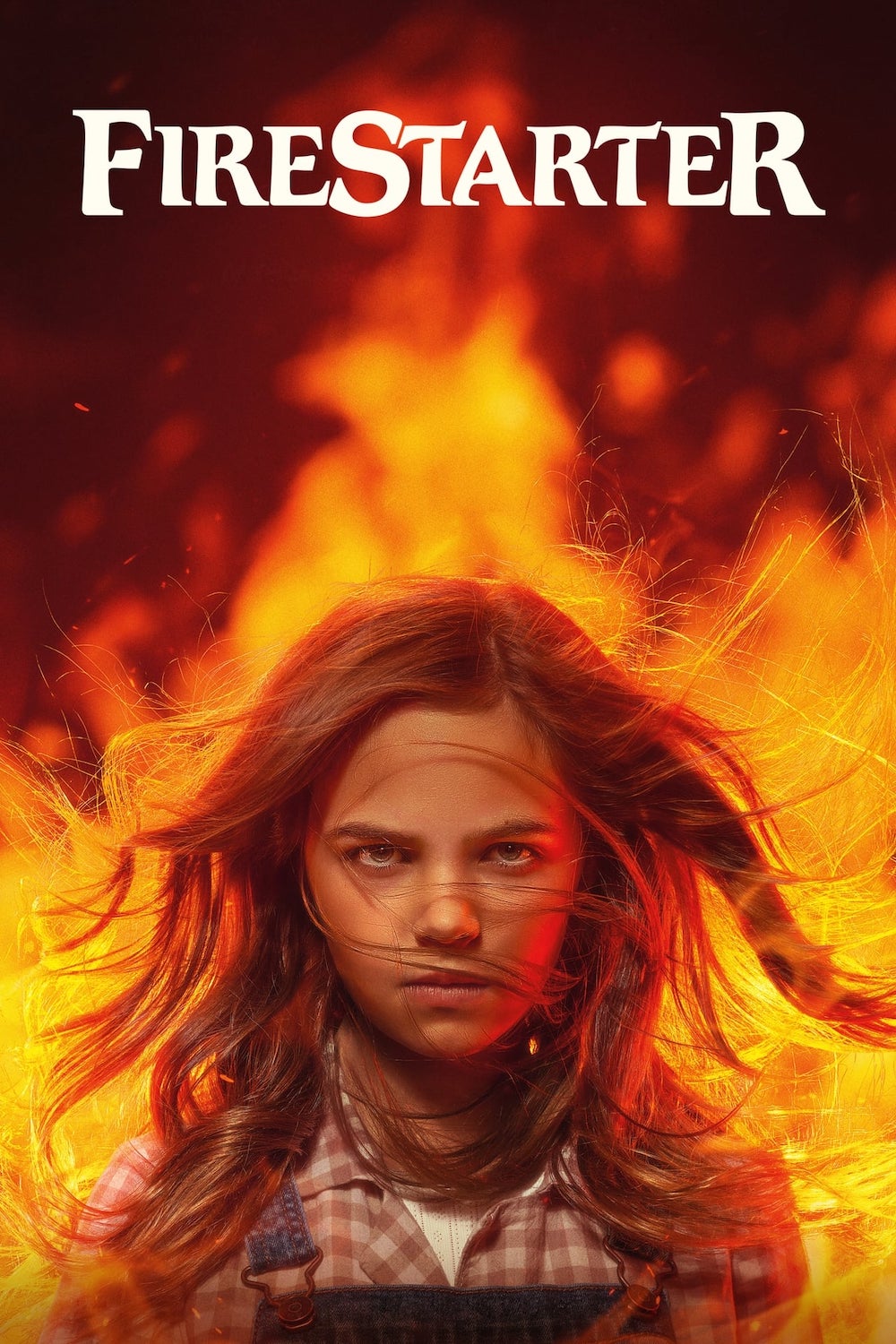
director: Keith Thomas.
writer: Scott Teems (based on the novel by Stephen King).
starring: Zac Efron, Ryan Kiera Armstrong, Sydney Lemmon, Michael Greyeyes & Gloria Reuben.
